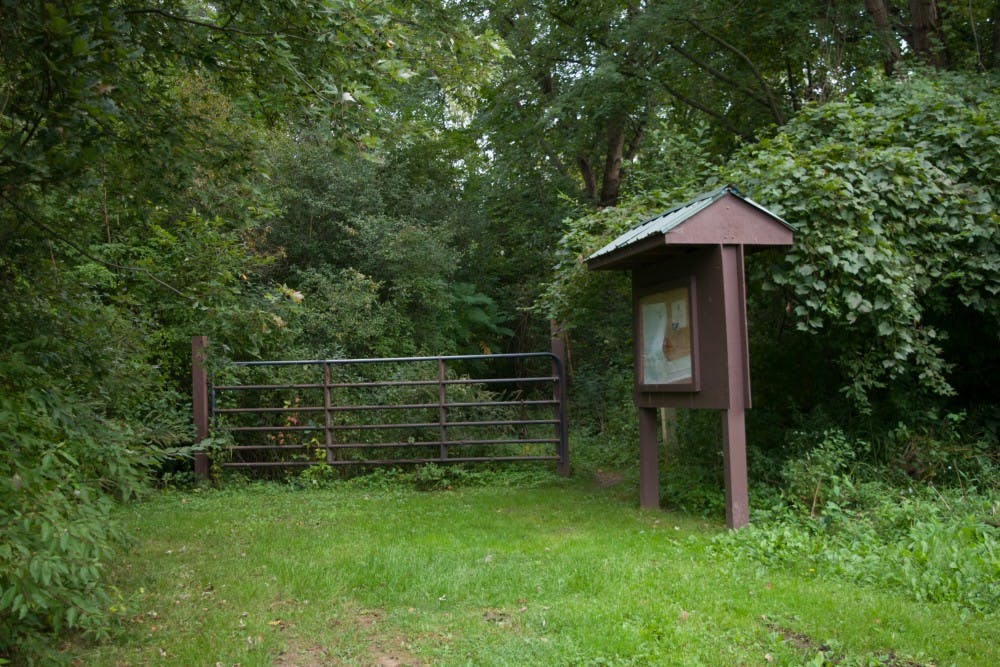The Faculty Student Association says its 1964 land purchase for students came from a mixture of student activity fees and other organizational resources.
For three decades, FSA, a UB-controlled nonprofit known to most students as Campus Dining & Shops, has claimed it had no idea how much money went into the $785,500 it used to buy a piece of land in Amherst in 1964.
This month, FSA lawyer Terry Gilbride of the law firm Hodgson Russ wrote that a “portion” of FSA’s funds used to purchase the 1964 land “did originally come from student [activity] fees collected by FSA” and the “balance of the purchase price came from other FSA resources which did not derive from student activity fees.”
In September, Sub-Board I, a fiscal agent for student activity fees, told The Spectrum if the land purchase came from student fees, they want to control the purchase's now $1.5 million asset.
The Spectrum made numerous calls and emailed FSA board members to get a response on the 1964 land purchase and 1987 land sale between Sept. 28 and Oct. 5. Gilbride responded via email on FSA’s behalf on Oct. 5, and again on Oct. 10.
Gilbride did not comment on how much student money FSA used of the $785,500 spent toward the land purchase.
“During FSA's ownership, moreover, a significant portion of the property carrying costs were paid by the FSA with resources that did not derive from student activities fees,” Gilbride wrote in an email.
“The ‘programming [grant] fund’ was created in 1988 in an effort to acknowledge the various constituencies with a connection to this real estate purchase and sale.”
The agreement between FSA and SBI in 1988 and 2008, Gilbride wrote, recognizes and addresses the two organizations’ “shared history with respect to the property” and “is designed to ensure that earnings on the proceeds from the sale of this property are expended for the benefit of the student community.”
“Given this history, the FSA Board will not be entertaining any efforts to terminate or renegotiate the 2008 agreement prior to its scheduled expiration in 2023,” Gilbride wrote.
The Spectrum currently has a copy of the 1988 and 2008 programming grant fund agreements between FSA and SBI. Both agreements state the fund, now valued at $1.5 million, is a restricted asset owned and administered by FSA.
Both agreements, however, do not mention the 1964 land purchase, the 1964 purchase price, student money used for the purchase or student money used after the purchase toward the land.
The agreements state FSA’s profit from the 1987 land sale: $589,341.
Gilbride wrote that the agreement between SBI and his client, FSA, establishes the fund’s ownership “resides with the FSA.” Per the agreement, SBI receives annual interest from FSA’s investments. The annual interest is used toward SBI’s programming grant fund.
“As such, under established accounting standards for not-for-profit corporations and the New York Not-For-Profit Corporation Law, the ‘programming [grant] fund’ is recognized as an asset of the FSA in which the FSA holds full ownership rights,” Gilbride wrote.
“Earnings on the ‘programming [grant] fund’ are governed by the terms and conditions of the 2008 Agreement and are remitted annually to the SBI for expenditure to ‘enhance the quality of the university experience for all SUNY/Buffalo students in ways that do not duplicate the efforts of SBI’s other programs or the programs of the other organizations on campus.’”
The 2008 agreement between FSA and SBI is in effect until Nov. 29, 2023. Gilbride wrote that since the agreement doesn’t expire for another five years, “any discussions of transferring ownership of the ‘programming funds’ from the FSA to SBI are at this point premature.”
“The terms and conditions of the 2008 Agreement, as well as the 1988 Agreement which preceded it, reflect the outcome of extensive discussions between the FSA and SBI and are designed to ensure that the ‘programming [grant] fund’ is properly administered, invested and expended for the benefit of the student body and campus community at-large,” Gilbride wrote.
“The Faculty Student Association remains committed to safeguarding the ‘programming [grant] fund’ for the long-term enrichment and enhancement of the university experience for all SUNY/Buffalo students.”
Benjamin Blanchet is the senior features editor and can be reached at benjamin.blanchet@ubspectrum.com and @BenjaminUBSpec on Twitter.

Benjamin Blanchet is the senior engagement editor for The Spectrum. His words have been seen in The Buffalo News (Gusto) and The Sun newspapers of Western New York. Loves cryptoquip and double-doubles.





